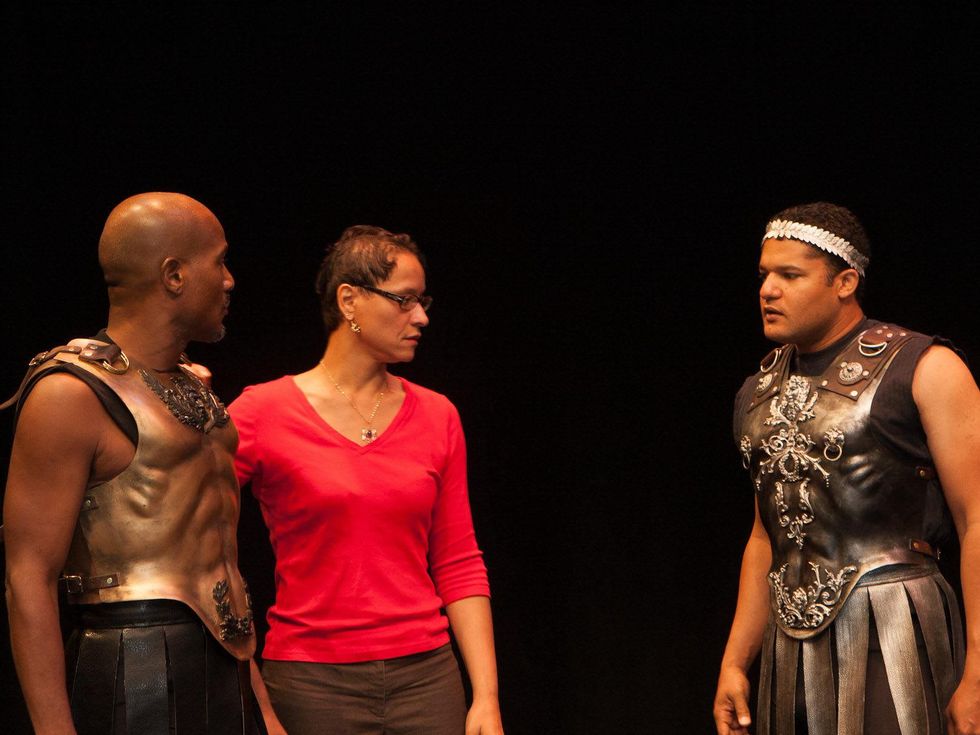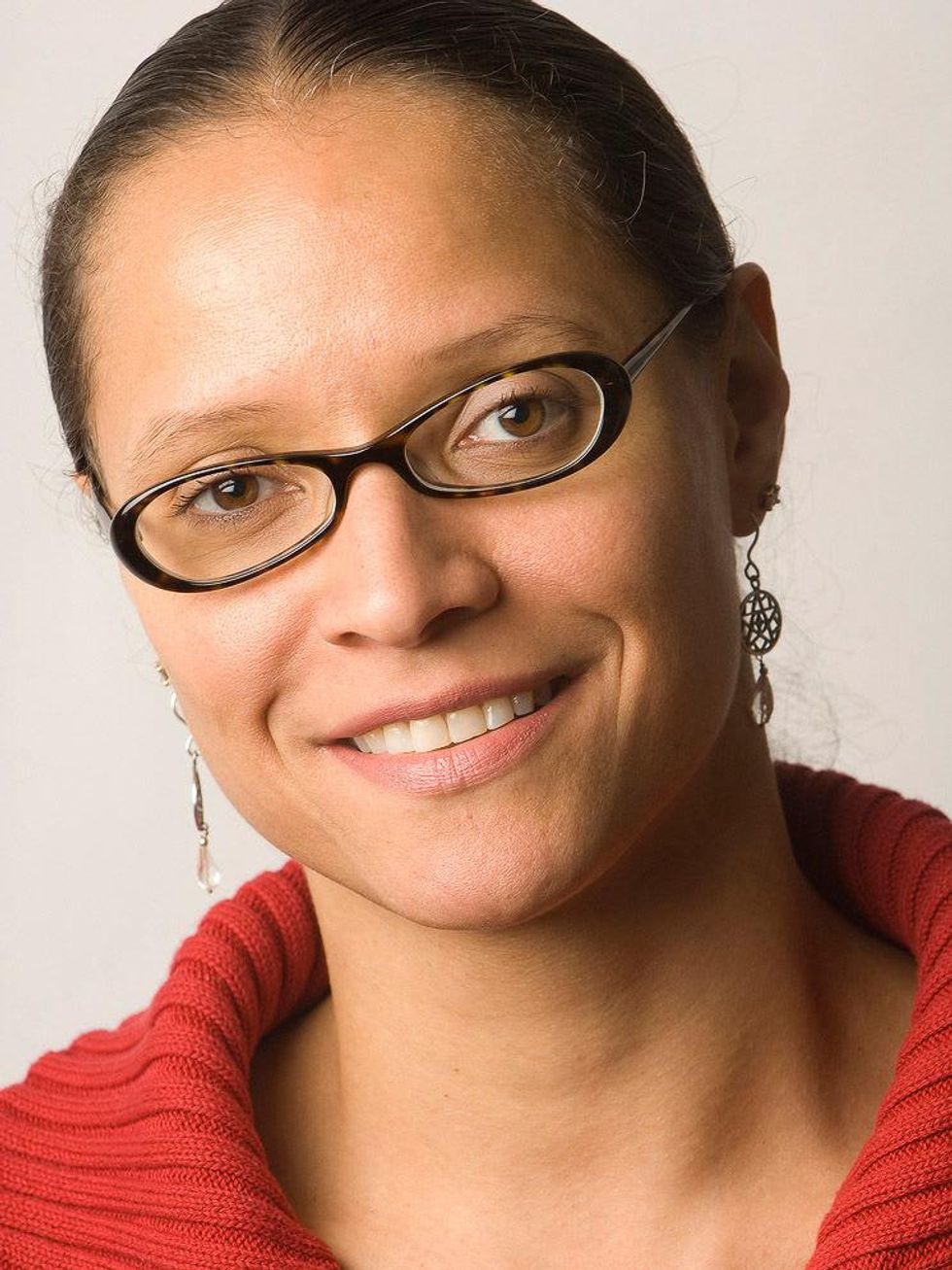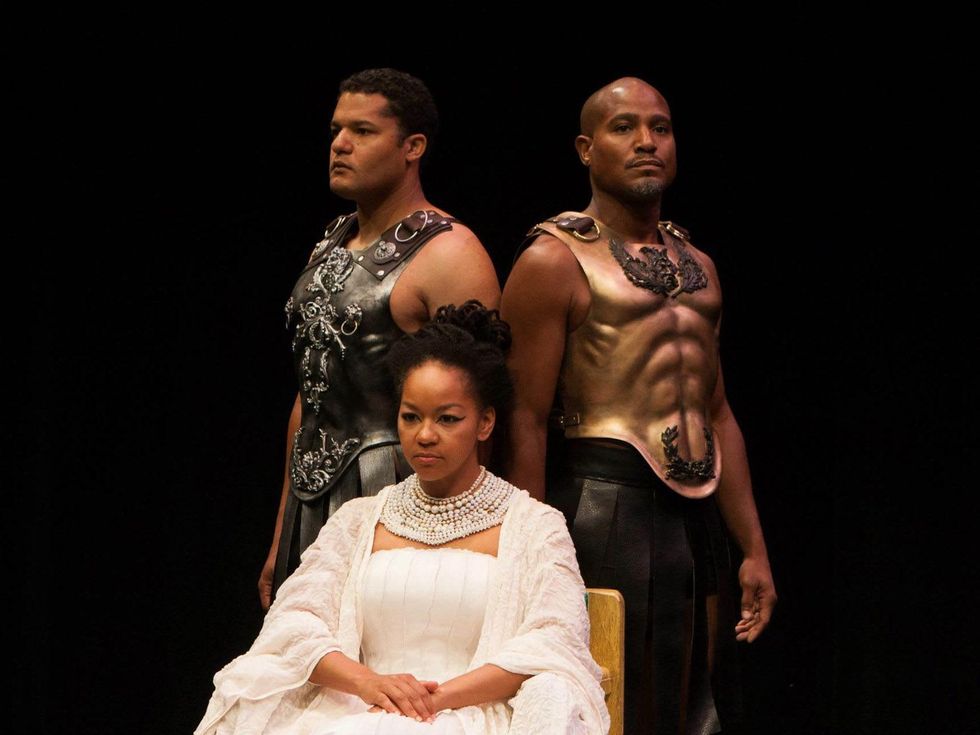Houston Shakespeare Festival
The most powerful woman of all: Controversial Facebook book inspires Houston's Cleopatra
Obie Award-winning theater director Leah Gardiner knows something about being a woman with power, at least when it comes to onstage worlds, so it’s quite appropriate she’s returned to the Houston Shakespeare Festival this summer, bringing her vision of antiquity’s most powerful woman, Cleopatra.
Writers — no different from the rest of humanity — have been obsessed with the Egyptian queen for 2000 years, but few have been able to give her voice the poetic beauty that Shakespeare does in Antony and Cleopatra.
The play brings to life some of the most dynamic and important figures in world history, like Octavius Caesar, Mark Antony, and Sextus Pompey, so why is Cleopatra the character audiences have been mesmerized by for centuries? This was the question put to Gardiner when I had the chance to speak with her during the play’s rehearsal period.
“We love them and we hate them . . . I think ultimately how we think of women in power has a lot to do with how we think about Cleopatra.”
“At the time, she was compellingly exotic, in the sense in that she was brave, she was courageous; she stood up to men. She ran an empire,” Gardiner says.
She observes that both men and women find Cleopatra compelling in her ability to guide men, her nation, and her people to her way of thinking. This can be both a turn on and and a “turn off.” Like many powerful women in history, “You can love and hate her fully,” sometimes even at the same time, Gardiner says.
Antony and Cleopatra is something of a monster of a play with its constant scene changes that sweep the audience back and forth across seas and countries as the characters struggle to rule their corners of the Roman Empire. Yet, Gardiner sees something deeper than politics and war at its center.
Many Love Stories
“At the heart of it, it’s really about love, love for nation, love for country, and love between a man and a woman, who perhaps shouldn’t be together but love each other,” Gardiner explains, noting the tragedy also is about “the complicated nature of how they deal with a forbidden love and how that plays into their work life and their professional life.”
Literary scholars and astute audience members tend to note that Shakespeare’s Cleopatra is the consummate actress and sometime even wonder if this epic love story is perhaps one-sided with the great queen playing any role required to keep her queendom. Gardiner says no.
“I do believe that she truly loves Antony and although she is a very clever woman, similar to Queen Elizabeth knowing how to use whatever she needs to do to maintain her empire, Cleopatra did love, and she loved Antony,” Gardiner argues.
Women Of Power
Some directors want to change original setting when staging a Shakespeare play, but Gardiner is grounding her version of Antony and Cleopatra in ancient Rome and using simple set design to highlight the dense poetry of the play.
"I do believe that she truly loves Antony and although she is a very clever woman, similar to Queen Elizabeth knowing how to use whatever she needs to do to maintain her empire."
Yet during our conversation when Gardiner referenced Hillary Clinton, Queen Elizabeth, Facebook COO Sheryl Sandberg’s book Lean In, British succession laws, and that incident when Margaret Thatcher called Helen Thomas “dearie," it became evident that the director has been musing on what it means to be a woman who wields power then and now.
She believes what was true for a powerful woman in the ancient world is still true today: “We love them and we hate them . . . I think ultimately how we think of women in power has a lot to do with how we think about Cleopatra.”
Powerhouse Director
And what about Gardiner herself, an award-winning director who usually works with plays written by men depicting men’s worlds? The sister to five brothers and mother of a young son, she believes she has a strong relationship and understanding of men, “how they work and operate,” and so she uses that to enhance her directorial skills, tapping “into the minds and consciousness of the actors” in her plays.
She even married an actor, television and film star Seth Gilliam, who plays the title role of Antony.
The Gardiner/Gilliam marriage might defy the stereotype of the male director and his leading lady, but Gardiner feels they’re like many married couples who work or own a business together.
“Because we started together in the industry, we know what each other’s responsibilities are, and we know how to help the other ,which sort of carries over to our personal lives," she says. "If anything, it enhances our relationship because we have so much respect for the other and how the other works.”
Since they often have to work apart on separate coasts, she thinks the times they get to work together help fortify their marriage.
During our interview, Gardiner mentioned Sandberg’s book Lean In several times. Reading the women’s stories the book presents was “empowering” for her, since in her own field she’s a bit of a pioneer.
“Of my generation, I’m really one of the first to have a kid and then continue my career,” she says. And while most directors, male or female, have a few funny theater tales ready to amuse a journalist, only Gardiner could bring me to laughing tears with her story of the time a few months after giving birth to her son, when her breasts almost upstaged a play’s rehearsal via a dramatic, directorial milk explosion.
Coming back to Cleopatra, I had to wonder: Was she as much a masterful director as the great actress she’s accused of being?
“Of course, an actor and a director. She has to be,” Gardiner agrees. “You have to be to have that kind of power, not just over men but over an empire.”
HSF’s Antony and Cleopatra and As You Like It run from Aug. 2 to Aug. 11 at Miller Outdoor Theatre.







